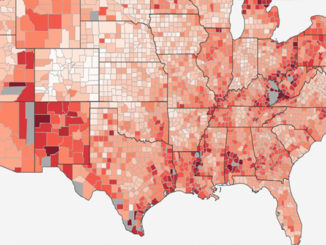
by Michael Itzkowitz
College accreditation has been around for over a century. For its first 50 years, it had no ties to the federal government. Accreditors were private entities that were supposed to ensure a basic level of educational quality at the institutions they oversaw, and work with those schools to continuously improve their outcomes. However, following a massive influx of GI Bill funds following WWII, the government needed some way to make sure that these taxpayer dollars were being sent to institutions that were serving students well. So they enlisted the help of college accreditors to serve another function — gatekeeper to federal financial aid funds. This role continues today.
Yet in a time when only half of students who enroll in higher education graduate, and those who don’t are left with increasingly heavy debts, many have begun to question whether those gatekeepers are really working as intended. And as the federal investment in higher education continues to grow, totaling nearly $120 billion in federal grants and loans last year alone, policymakers are beginning to ask more questions. These questions include whether accrediting bodies are helping to ensure that students will graduate and find employment. Unfortunately, the answer to these questions is often no.
According to the U.S. Department of Education Accreditor Database, there are currently 30 accredited institutions where fewer than 10% of students end up earning a certificate or degree, even eight years after they’ve entered. Ten percent! And there are 680 accredited institutions that leave most of their students degreeless, earning less than the average high school graduate, and unable to pay anything towards their loan principal within a few years of leaving.
When presented with these data, college accreditors often hedge, saying that keeping out poor performers is not their primary purpose, and never will be. Instead, they claim their primary mission is spurring continuous improvement, rather than opening or closing the door to a massive amount of taxpayer funds.
This begs the question then, if accreditors aren’t being very good gatekeepers, are they at least actually improving the outcomes of the institutions they oversee? To answer this question, I looked specifically into how well accredited institutions were doing to improve the graduation rates of their students — because students who complete their programs of study do better on a host of other post-graduation outcomes, from job placement, to earnings, to loan repayment. I l examined the federal graduation rates at institutions with at least 100 first-time, full-time students in 2012-2013 and, again, in 2016-2017. And while we know the federal graduation rate remains incomplete, as it only measures first-time, full-time students, it provides a starting point to examine whether student outcomes are actually improving at accredited institutions across the United States.
The results? Mixed.
Out of the 1,657 four-year institutions with data available, more than 4 in 10 (676) showed that their graduation rates had fallen within the five-year measurement period. And 224 showed at least a 5% drop, with another 77 showing a decrease of at least 10%.
This isn’t just a problem at four-year colleges. Out of the 1,542 institutions that primarily award certificates and associate’s degrees, 533, or more than a third, had graduation rates that fell at more than 5%. And 197 showed a drop of 10% or more.
Overall, 39% of accredited institutions now graduate a lower proportion of students than they did five years ago. With this information in hand, it’s hard to argue that college accreditors are effectively fulfilling their promise of continuous improvement, despite repeatedly touting that role as their most important.
Completion isn’t the only metric that matters, and we should also look into how well accreditors help their schools improve employment, earnings, and repayment outcomes, too. But if college accreditors suggest that their primary mission is continuous improvement, policymakers should demand that they demonstrate progress in the institutions they oversee — and hold accrediting agencies accountable for those results. And, if they can’t prove that student outcomes are improving where they have been lacking, these entities should no longer be trusted to be the main arbiters of educational quality in higher ed. Because when students enter college, they deserve better odds than a coin toss that they’ll actually graduate.
Michael Itzkowitz is a senior fellow for higher education at Third Way, a centrist think tank. He is also the former director of the College Scorecard at the U.S. Department of Education, serving in that role from 2015 to 2016.



